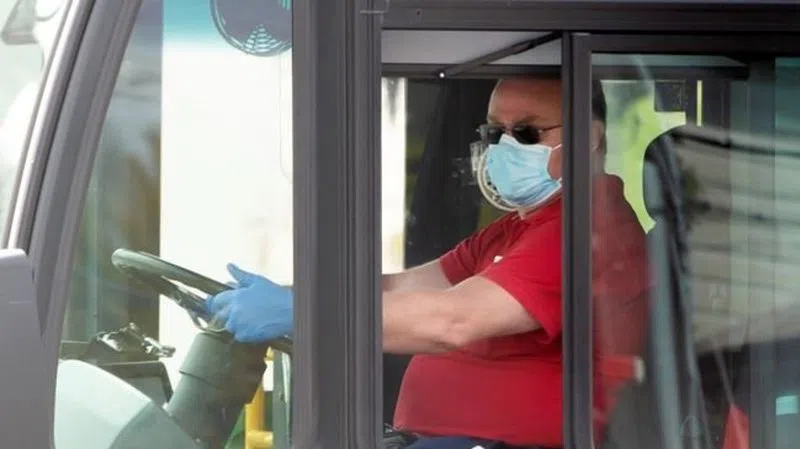
Transit workers across Canada concerned over lack of protective gear
TORONTO — Jason Watts hides in the washroom right up until the moment his shift as a bus driver in Toronto’s transit system begins.
The Toronto Transit Commission worker is terrified of contracting COVID-19, so he tries to minimize his exposure.
“If I’m standing in the station, people will come up and ask questions and forget about the social distancing — or maybe they don’t care,” Watts said.
It’s part of a series of procedures he undergoes to protect himself. He would prefer to wear a mask, but the TTC is not providing them to bus operators, he said.


